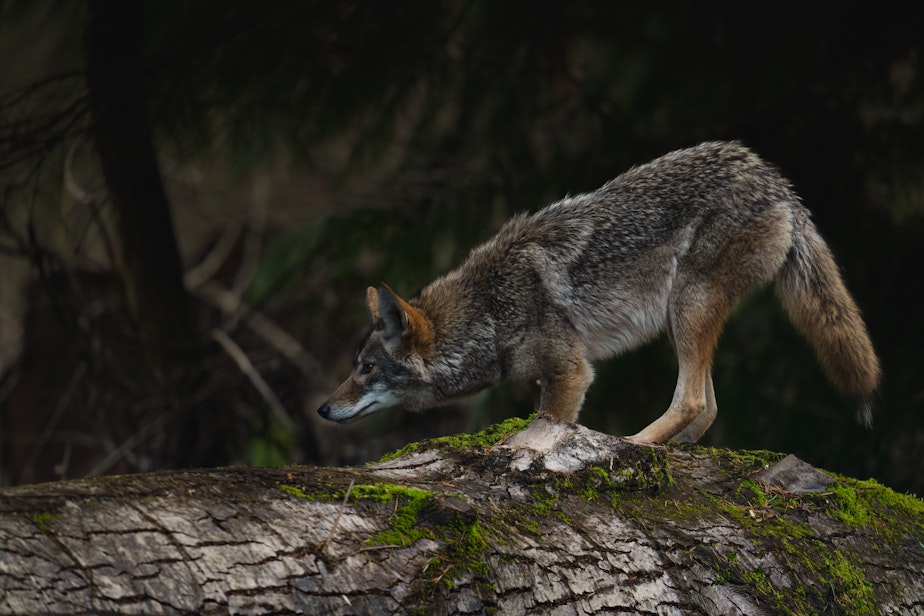Urban Coyote

In April of 2007, a coyote walked into a Quiznos in downtown Chicago. It walked inside the front door, right into a fast food restaurant full of people. And then, it sat in a soda cooler for an hour. It was an event so rare, it made the evening news.
“It's not every day that you see a wild animal essentially say, ‘This will do; this is part of my territory too,’” said Professor Chris Schell, a researcher who focuses on urban wildlife at the University of California, Berkeley.
“That is very aberrant behavior. For those of y'all listening to this podcast, that's not normal. So to have that happen in downtown Chicago was mind boggling.”
Why did the coyote walk into the Quiznos? How was it so tolerant of people? It's not normal for a wild animal to be less than six feet away from a human without a care. These are all questions that Schell has been asking as part of his work as an urban ecologist.
“‘Cause most people thought that cities were inhospitable, that they couldn't foster any life. And what we're finding is that no, in fact, life — this is a Jeff Goldblum line — finds a way, right? Life is finding a way in cities, so much so that it is subverting the ways in which we thought about nature. It is resulting in a paradigm shift for how we understand our role in this entire process,” said Schell.
Sponsored
Sometimes you start to think about a story that you want to tell, but the story itself takes you to unexpected places. In this case to some of the biggest questions of our time about urban ecology, race, and our future relationship with nature. This is one of those stories.
“One of the most important lessons in all of this is that we are connected to almost everything. And by helping to save the natural world in our cities, it serves as a proxy for the blueprint to saving ourselves,” Schell said.
Today, we’ll look at how a coyote in a refrigerator can teach us to rethink our entire relationship with nature — from deep in the wilderness, to deep downtown in our cities.
THE WILD is a production of KUOW in Seattle in partnership with Chris Morgan Wildlife and Wildlife Media. It is produced by Matt Martin and Lucy Soucek, and edited by Jim Gates. It is hosted, produced and written by Chris Morgan. Fact checking by Apryle Craig. Our theme music is by Michael Parker.
Follow us on Instagram (@thewildpod) for more adventures and behind the scenes action!
Clarification, 2:30 p.m., 6/6/2023: Sam Kreling is a PhD student working with Laura Prugh, Associate Professor of Quantitative Wildlife Sciences at the School of Environmental and Forest Sciences at the University of Washington. Professor Prugh is the principal investigator of the Seattle Coyote Project.





